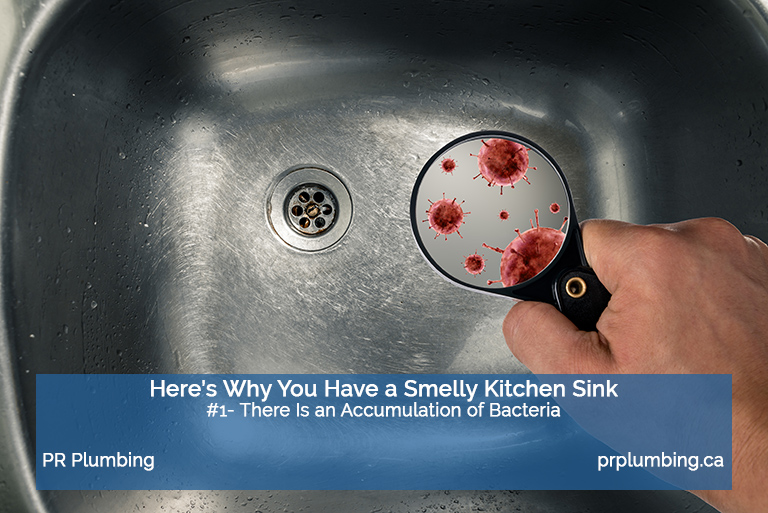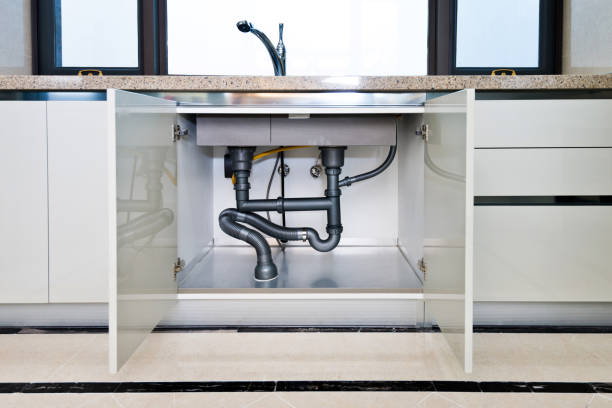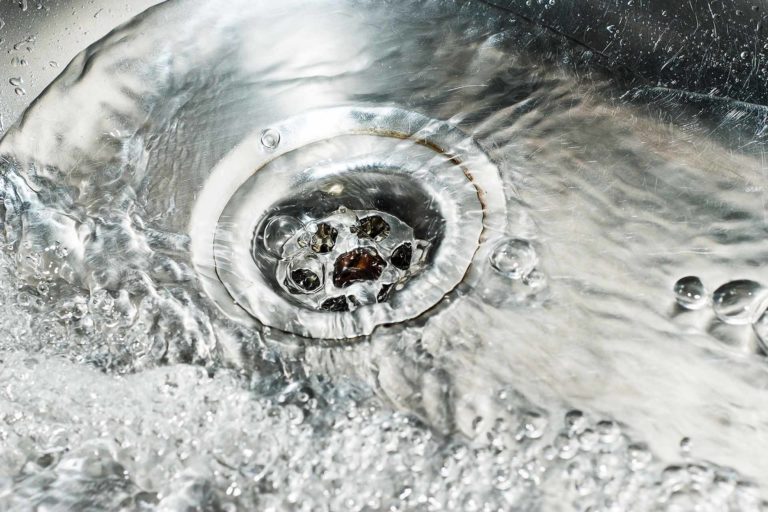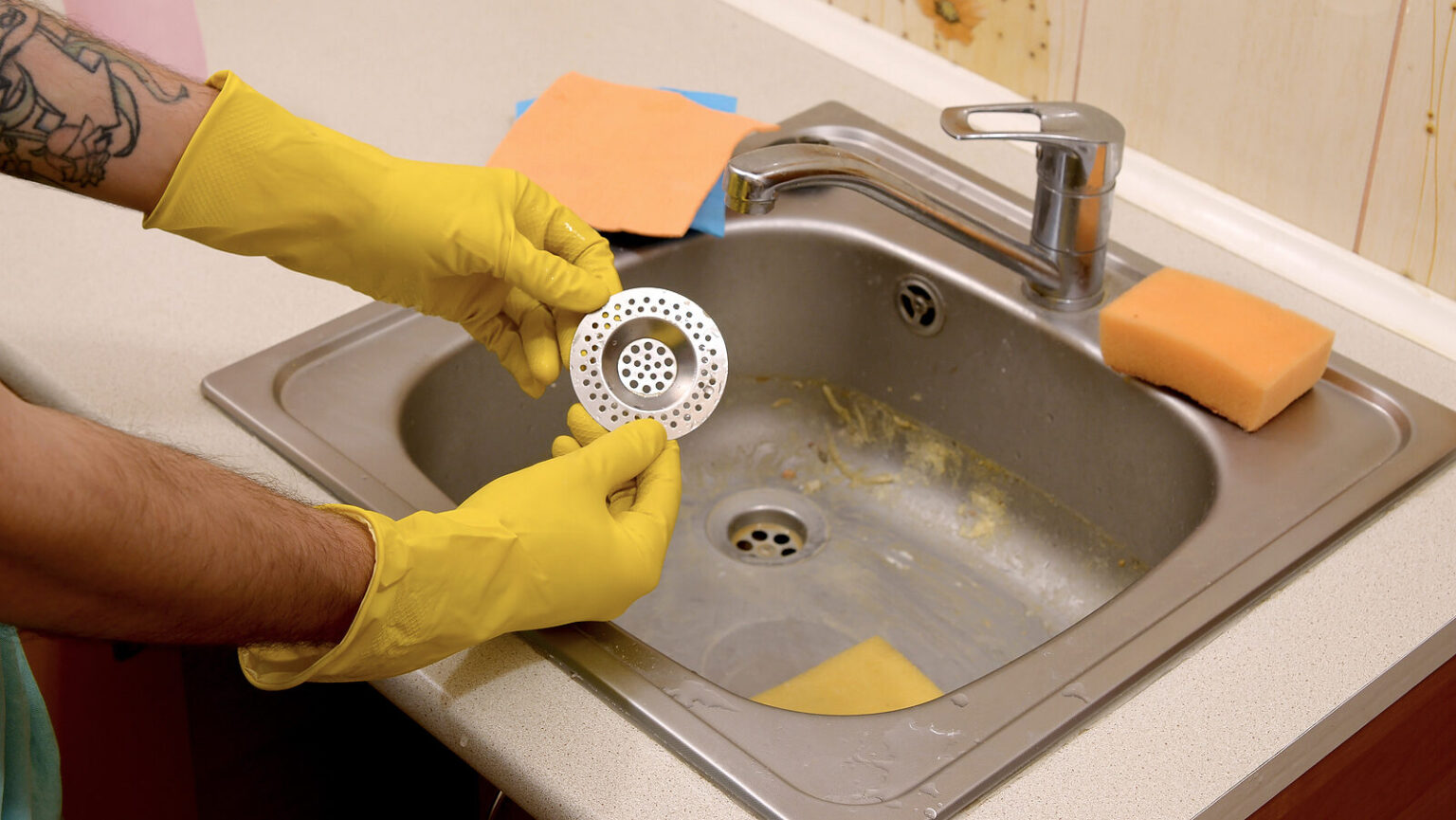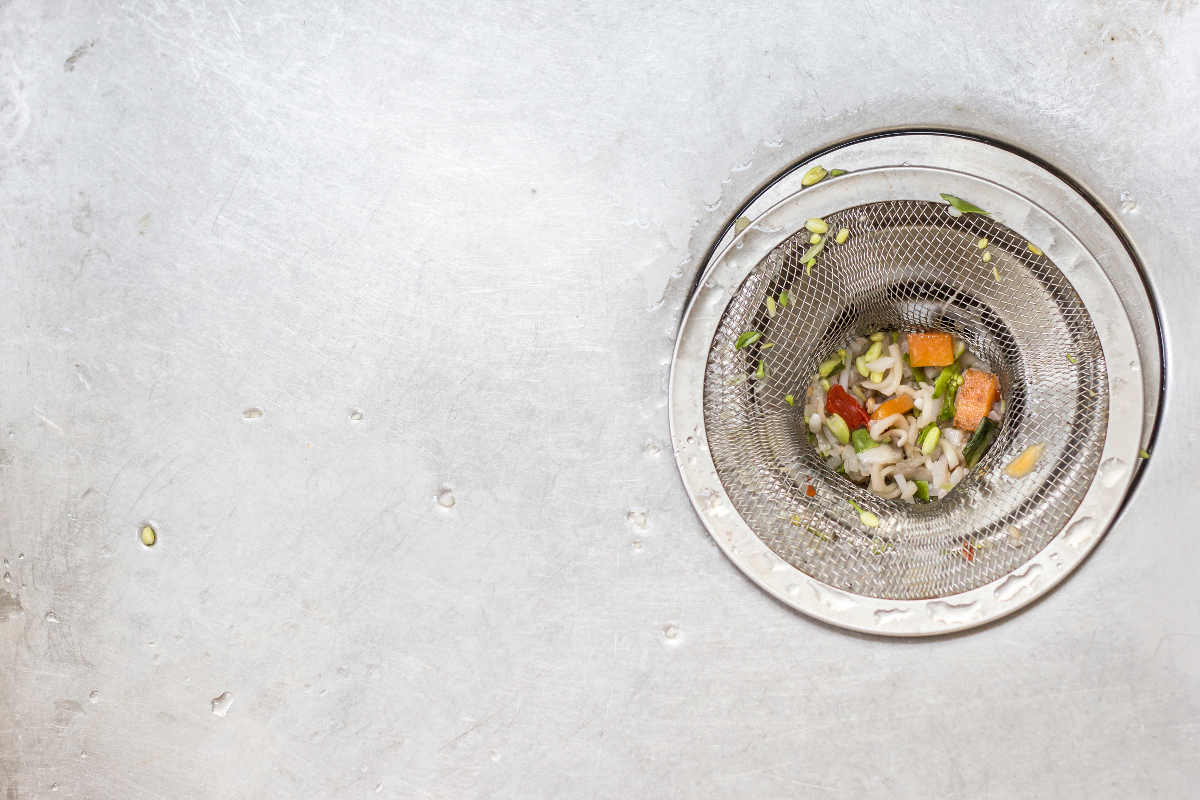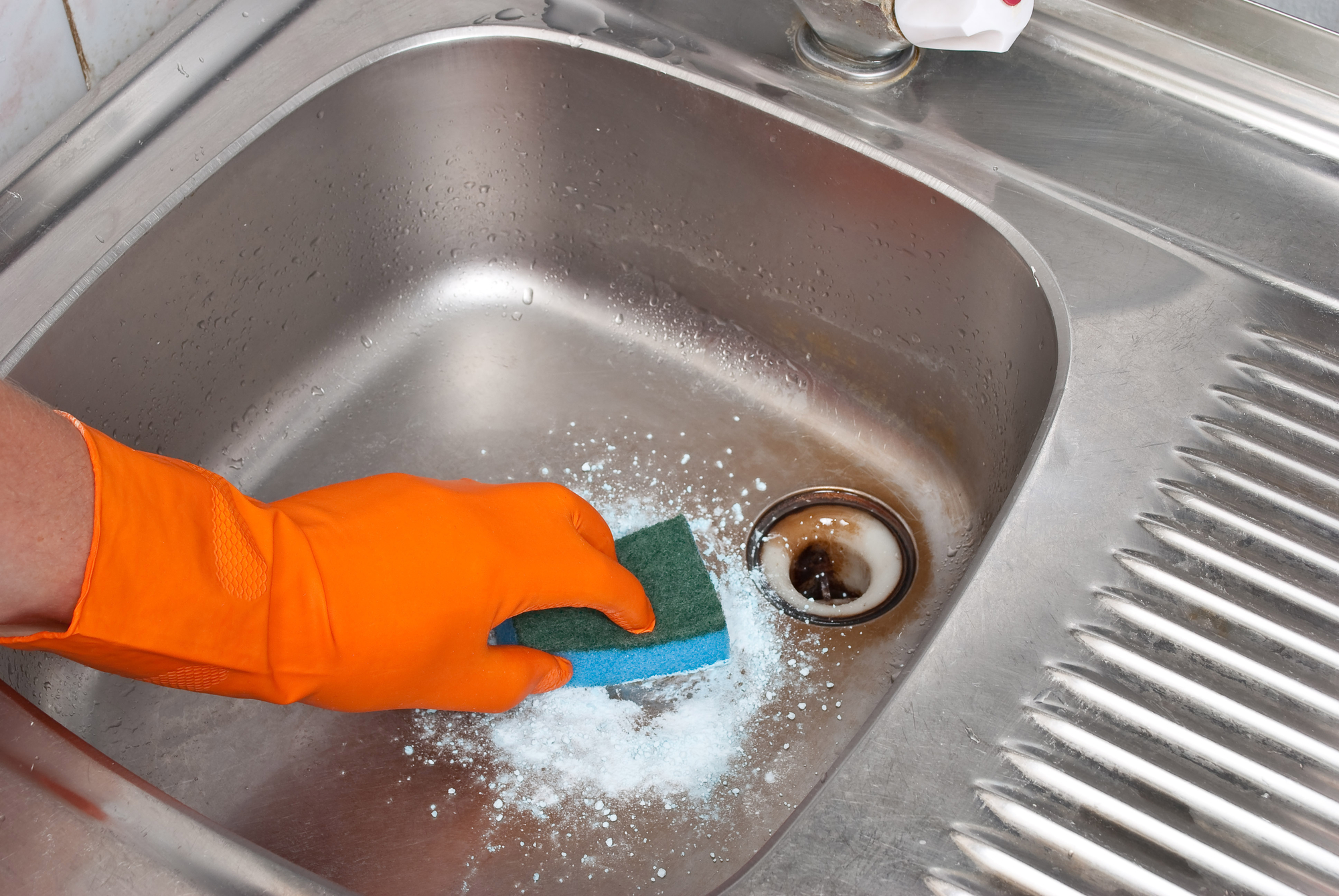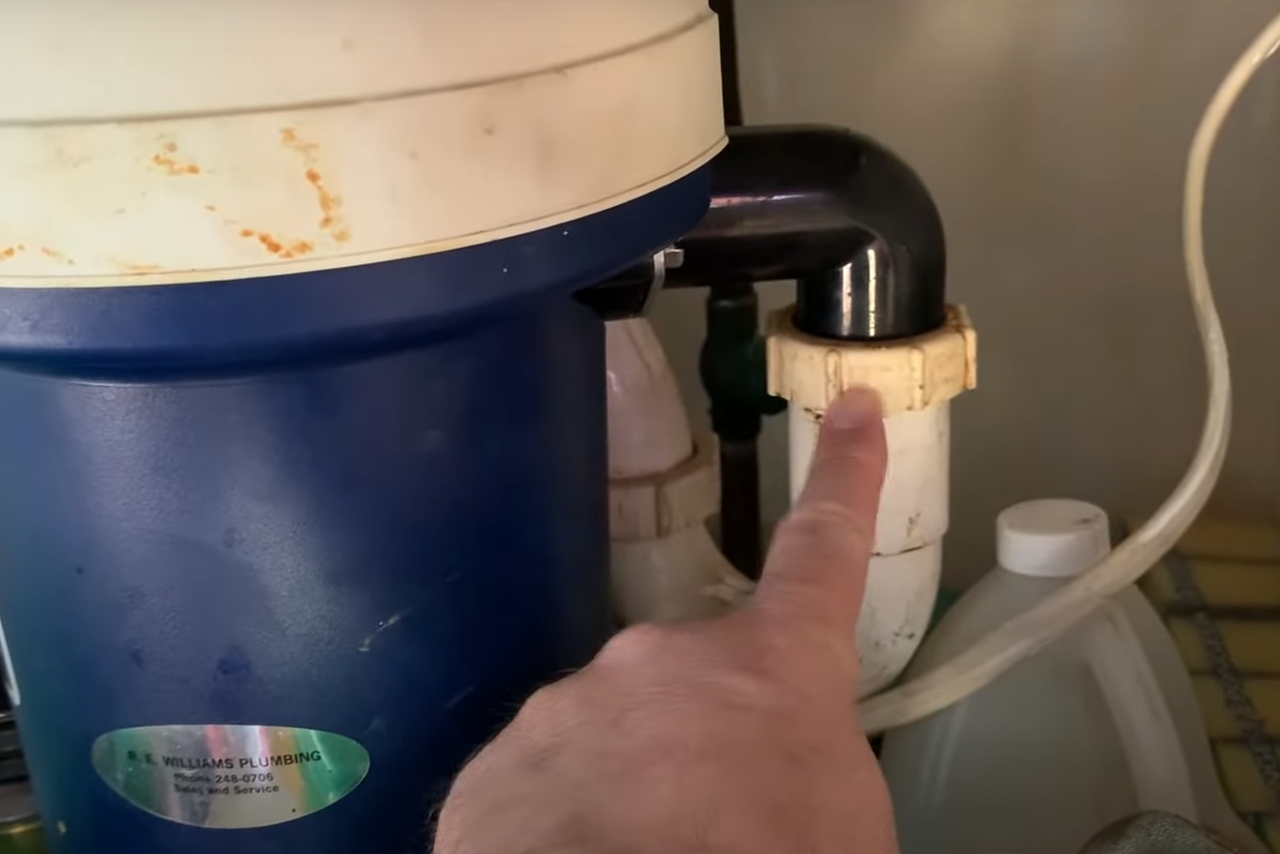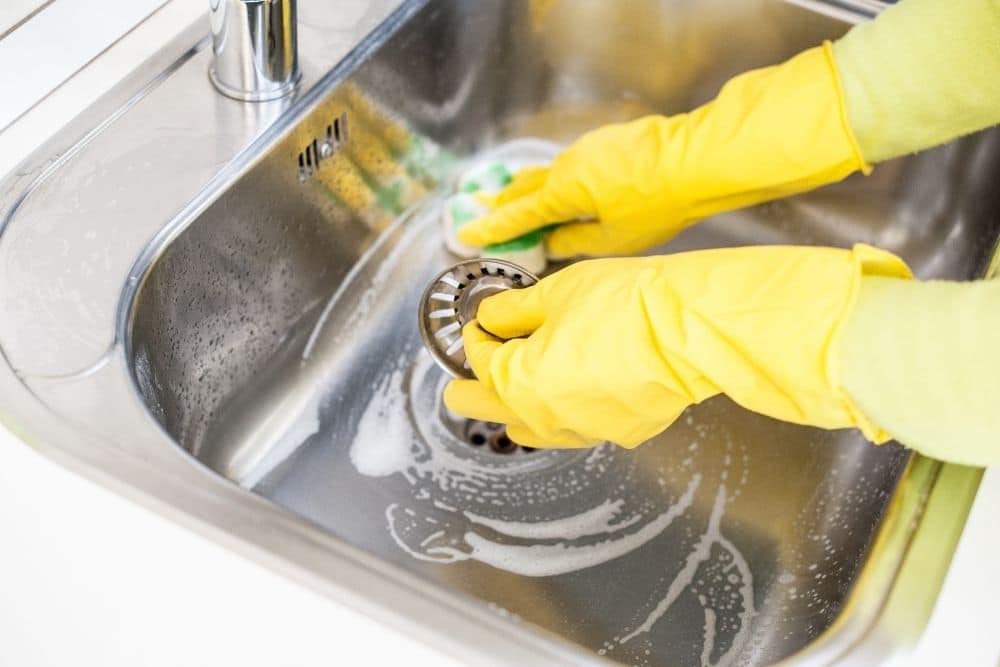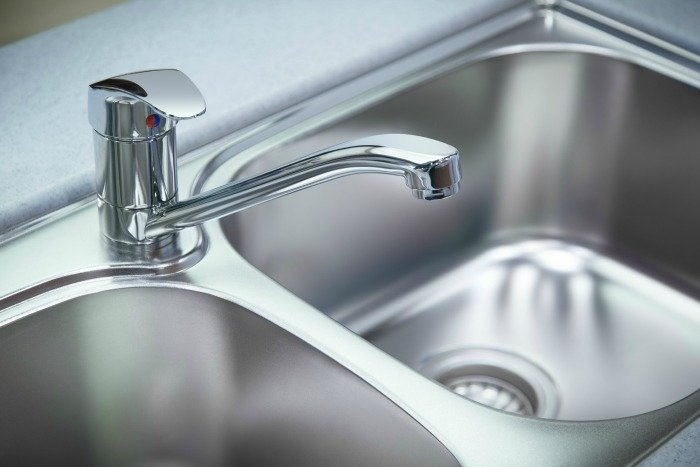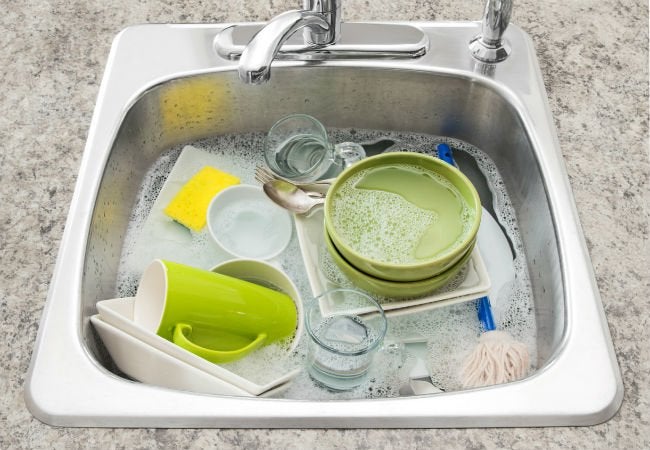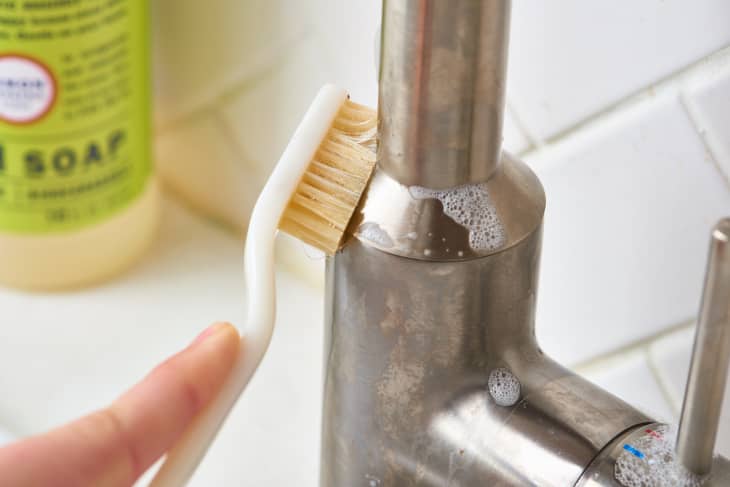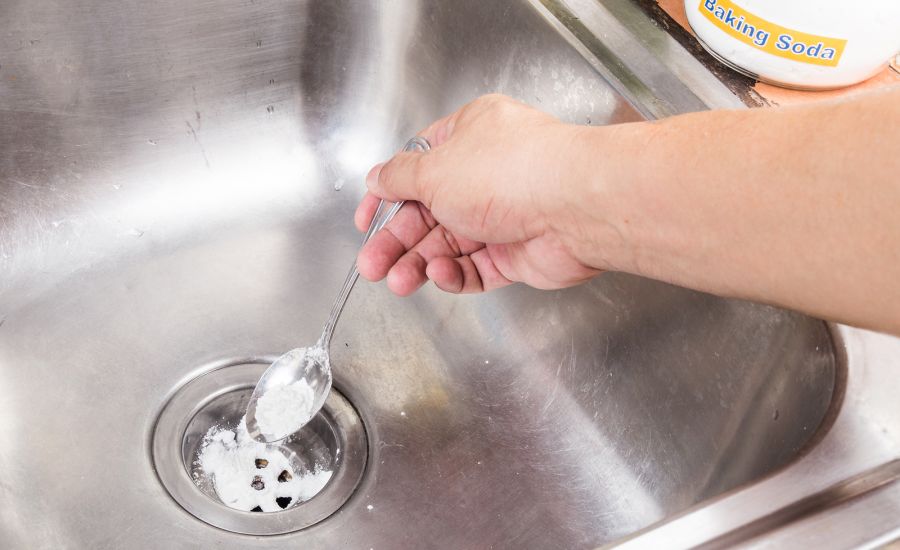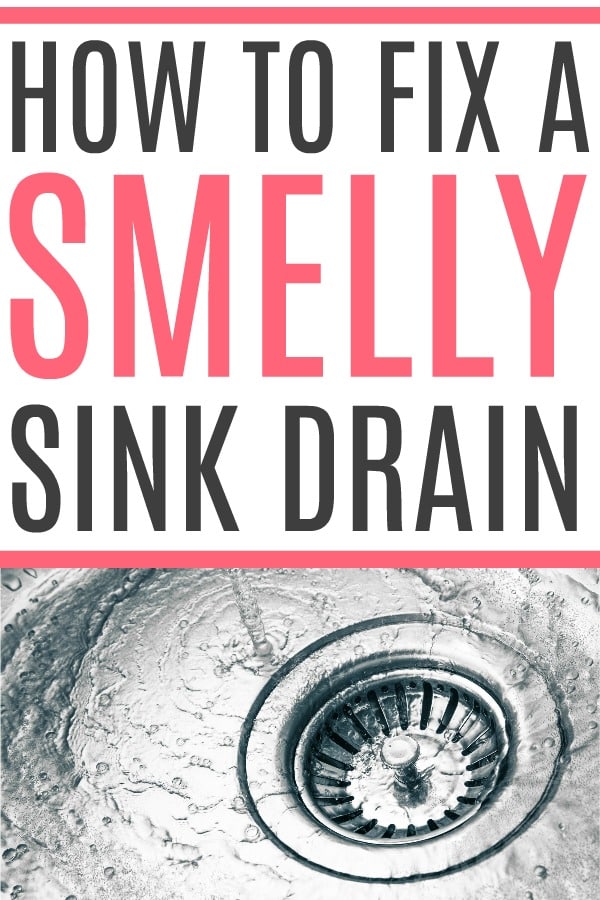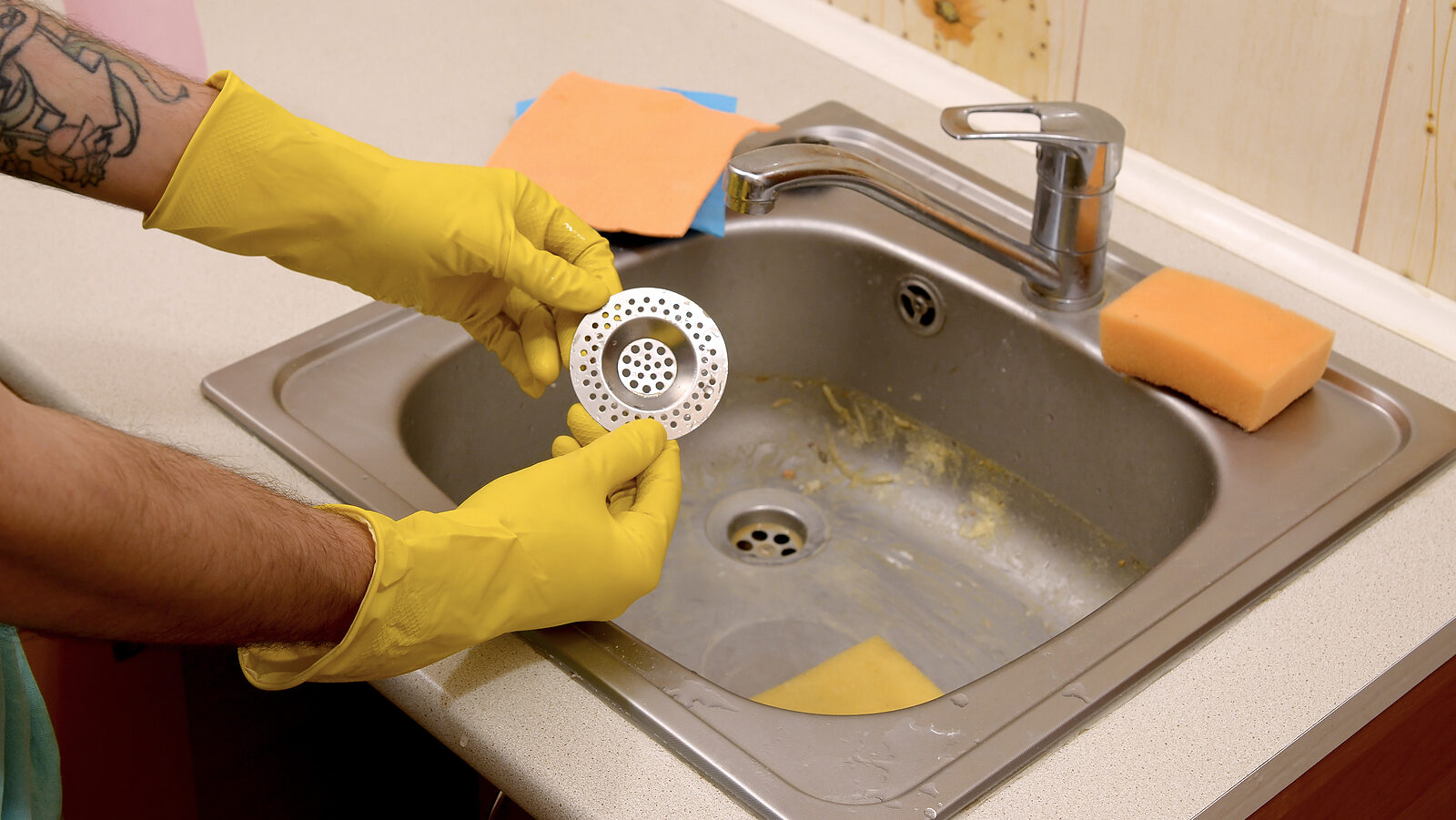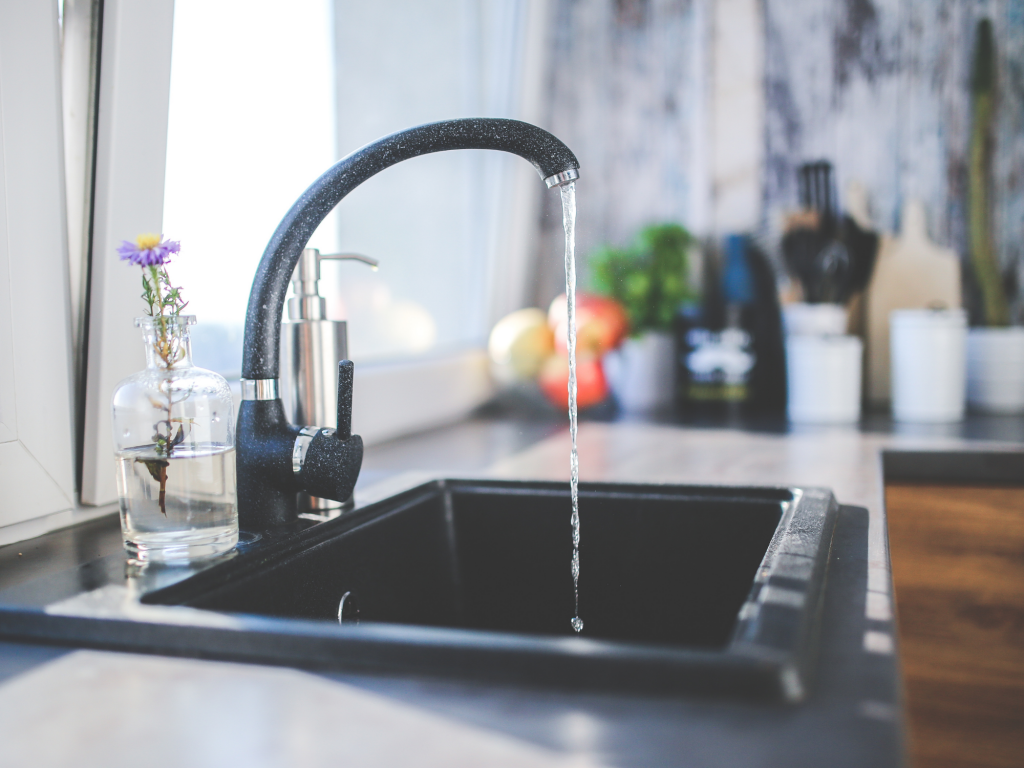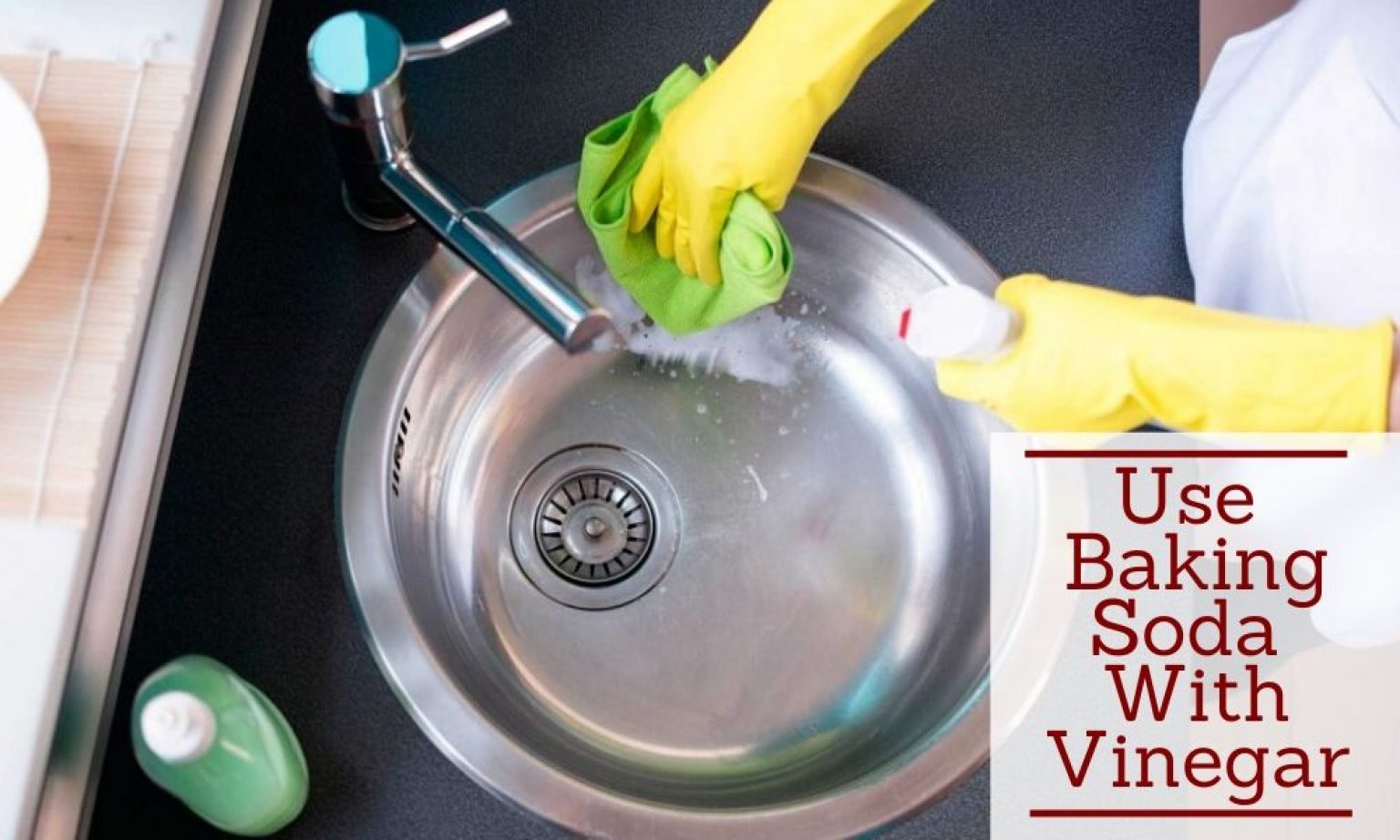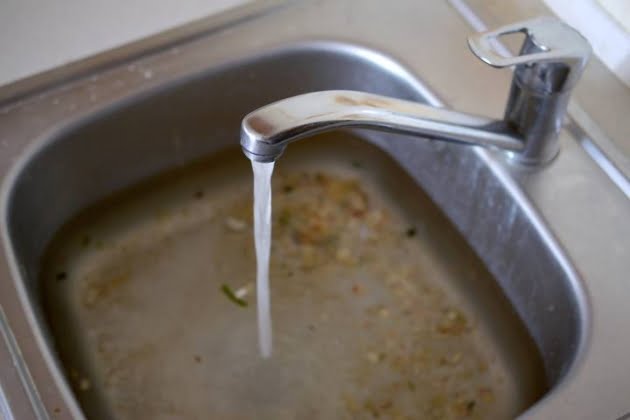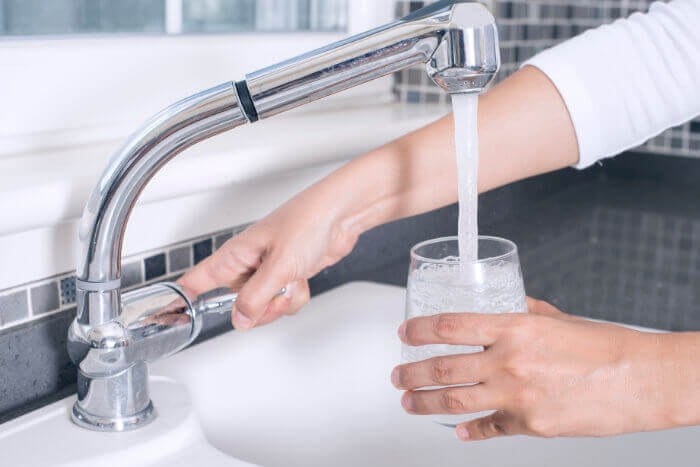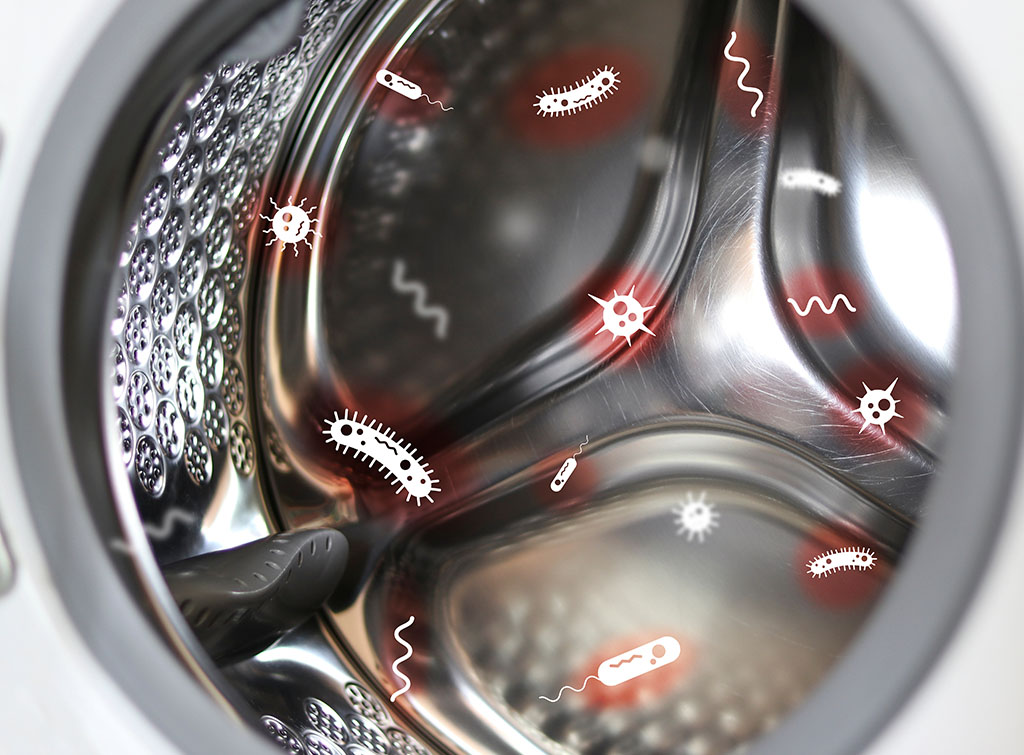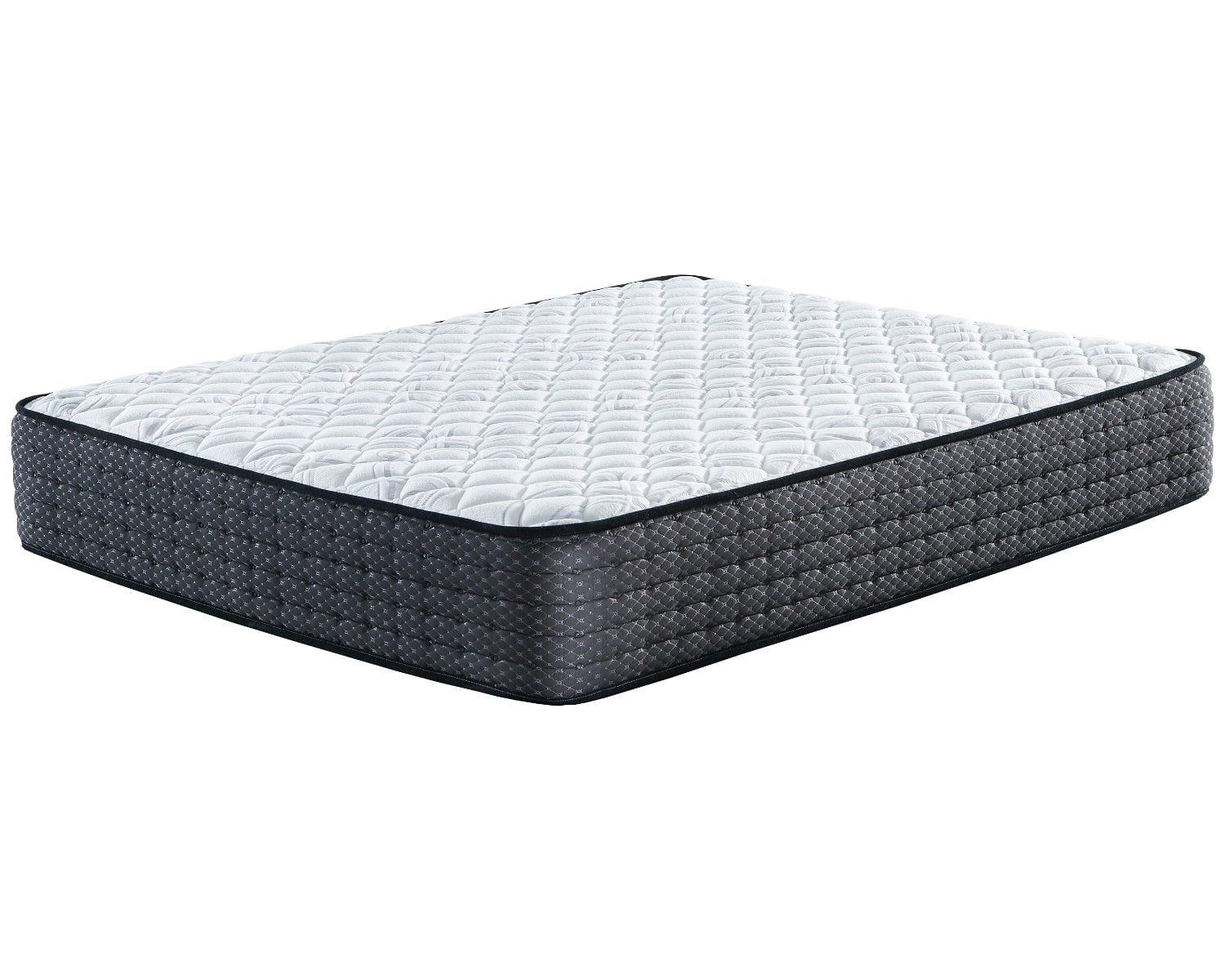If you've noticed a strange odor coming from your kitchen sink, you're not alone. Many homeowners experience this unpleasant problem, and it can be caused by a variety of factors. One common cause is food particles and debris that get stuck in the drain and start to decompose, producing a foul smell. Another possible cause is a buildup of bacteria and mold in the pipes, which can also lead to unpleasant odors. Additionally, if your kitchen sink has a garbage disposal, the blades may not be properly disposing of food waste, resulting in a stinky sink. Kitchen sink odors can also be caused by a clog in the drain, which can trap food particles and other debris and create a breeding ground for bacteria. Another potential culprit is a dry P-trap, which is the curved portion of the pipe under your sink. This trap holds water to prevent sewer gas from coming up into your home, but if it dries out, it can allow odors to escape from the drain.1. Causes of a Smelly Kitchen Sink
Luckily, there are several DIY solutions for getting rid of a smelly kitchen sink. The first step is to thoroughly clean the sink and drain. Use a mixture of hot water and vinegar or lemon juice to break down any buildup and eliminate odors. You can also try pouring baking soda down the drain, followed by hot water, to help remove any lingering smells. If the odor persists, try using a plunger to dislodge any clogs in the drain. You can also use a plumbing snake to remove any debris that may be stuck in the pipes. Additionally, regularly running hot water down the drain can help prevent odors from building up in the first place.2. How to Get Rid of a Smelly Kitchen Sink
Each type of kitchen sink odor may require a different solution, so it's important to identify the source of the smell before attempting to eliminate it. For example, if the smell is coming from the garbage disposal, try grinding up some ice cubes and citrus peels to clean and deodorize the blades. If the odor is coming from the drain itself, try using a mixture of baking soda and vinegar followed by hot water to break down any buildup and eliminate the smell. Sewer odors can be a bit trickier to get rid of, as they may indicate a bigger issue with your plumbing. In this case, it's best to call a professional plumber to inspect your pipes and determine the source of the odor. They may need to flush the pipes or repair any damage to eliminate the smell.3. Common Kitchen Sink Odors and Their Solutions
If you prefer to take a more natural approach to cleaning and deodorizing your kitchen sink, there are several DIY solutions you can try. One option is to pour a cup of baking soda down the drain, followed by a cup of vinegar. Let it sit for a few minutes, then flush with hot water. You can also try pouring boiling water down the drain to help kill any bacteria and remove any buildup. Another DIY solution is to make a mixture of lemon juice and salt and use it to scrub the sink and drain. The acid in the lemon juice can help break down any buildup and eliminate odors, while the salt acts as a natural abrasive to help scrub away grime.4. DIY Solutions for a Smelly Kitchen Sink
Regularly cleaning and deodorizing your kitchen sink can help prevent odors from building up in the first place. After using your sink, rinse it thoroughly with hot water to remove any food particles and debris. Then, use a mixture of dish soap and hot water to scrub the sink and drain. You can also add a few drops of your favorite essential oil to the mixture to add a pleasant scent to your sink. Additionally, make sure to clean your garbage disposal regularly by grinding up ice cubes and citrus peels. You can also use a small brush to scrub the blades to remove any buildup and eliminate odors.5. How to Clean and Deodorize Your Kitchen Sink
If you prefer to avoid harsh chemicals in your cleaning routine, there are several natural remedies you can use to get rid of a smelly kitchen sink. One option is to use a mixture of equal parts water and vinegar to clean and deodorize your sink and drain. You can also try using a paste of baking soda and water to scrub away any grime and eliminate odors. Another natural remedy is to use citrus peels, such as lemon or orange, to freshen up your sink. Simply grind them up in your garbage disposal or rub them on the sink and drain to help eliminate any unpleasant smells.6. Natural Remedies for a Smelly Kitchen Sink
Preventing kitchen sink odors in the first place can save you from having to deal with them later on. One important tip is to always run the garbage disposal with plenty of hot water to help flush away any food particles and debris. You should also avoid putting any oily or greasy substances down the drain, as they can solidify and cause clogs. Regularly cleaning your sink and drain, as well as using a drain cover to catch any food particles, can also help prevent odors from developing. Additionally, make sure to check and clean your P-trap regularly to ensure it is not dried out and is functioning properly.7. Tips for Preventing Smells from Your Kitchen Sink
If you've tried DIY solutions and natural remedies but your kitchen sink still has a foul odor, it may be time to call in a professional plumber. They will be able to thoroughly inspect your pipes and determine the source of the smell. They may also use specialized tools, such as a hydro-jet, to flush out any buildup and eliminate odors. In some cases, the smell may be coming from a larger issue with your plumbing, such as a cracked or damaged pipe. In this case, a professional plumber will be able to make the necessary repairs to get rid of the smell for good.8. Professional Solutions for a Smelly Kitchen Sink
There are several common causes of a foul smell coming from your kitchen sink. As mentioned before, food particles and debris can get trapped in the drain and decompose, producing a foul odor. A dry P-trap, clogged drain, or buildup of bacteria and mold can also lead to unpleasant smells. If you have a garbage disposal, it may not be functioning properly and may not be properly disposing of food waste, resulting in a stinky sink. Additionally, sewer gas may be entering your home through a cracked or damaged pipe, causing a foul smell.9. Common Causes of a Foul Smell from Your Kitchen Sink
If you're experiencing a smelly kitchen sink, there are several steps you can take to troubleshoot and fix the issue. First, try thoroughly cleaning the sink and drain with a mixture of hot water, vinegar, and baking soda. If the smell persists, try using a plunger or plumbing snake to remove any clogs in the drain. If the smell is coming from the garbage disposal, try grinding up ice cubes and citrus peels to clean and deodorize the blades. If the issue still persists, it may be time to call a professional plumber to inspect your pipes and make any necessary repairs. In conclusion, a smelly kitchen sink can be caused by a variety of factors, but there are many DIY solutions and professional services available to help get rid of the unpleasant odor. Regularly cleaning and maintaining your sink and drain can also help prevent odors from developing in the first place. By following these tips and troubleshooting any issues, you can have a fresh and clean-smelling kitchen sink in no time.10. How to Troubleshoot and Fix a Smelly Kitchen Sink
The Surprising Culprit Behind That Weird Smell from Your Kitchen Sink
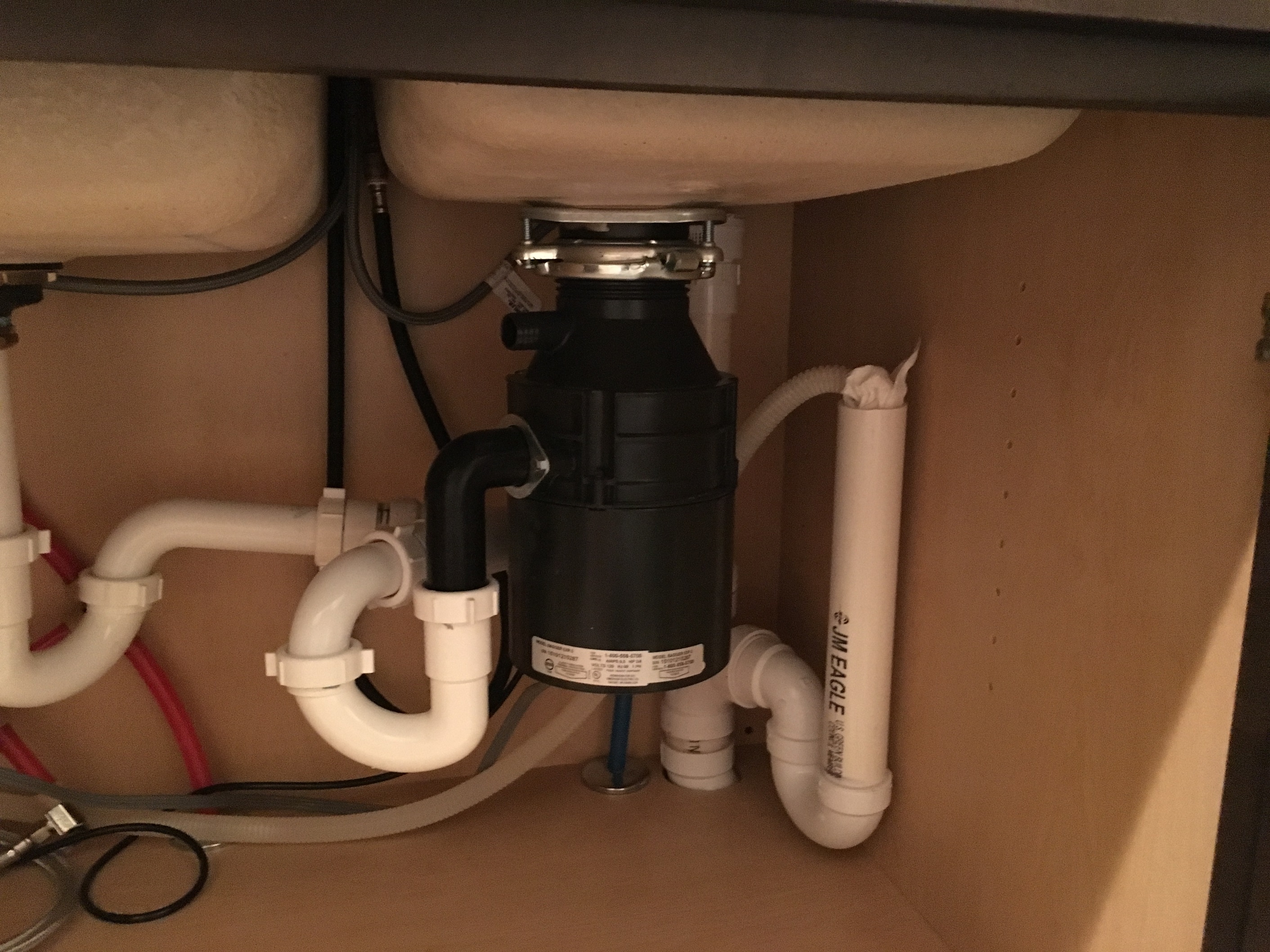
Investigating the Issue
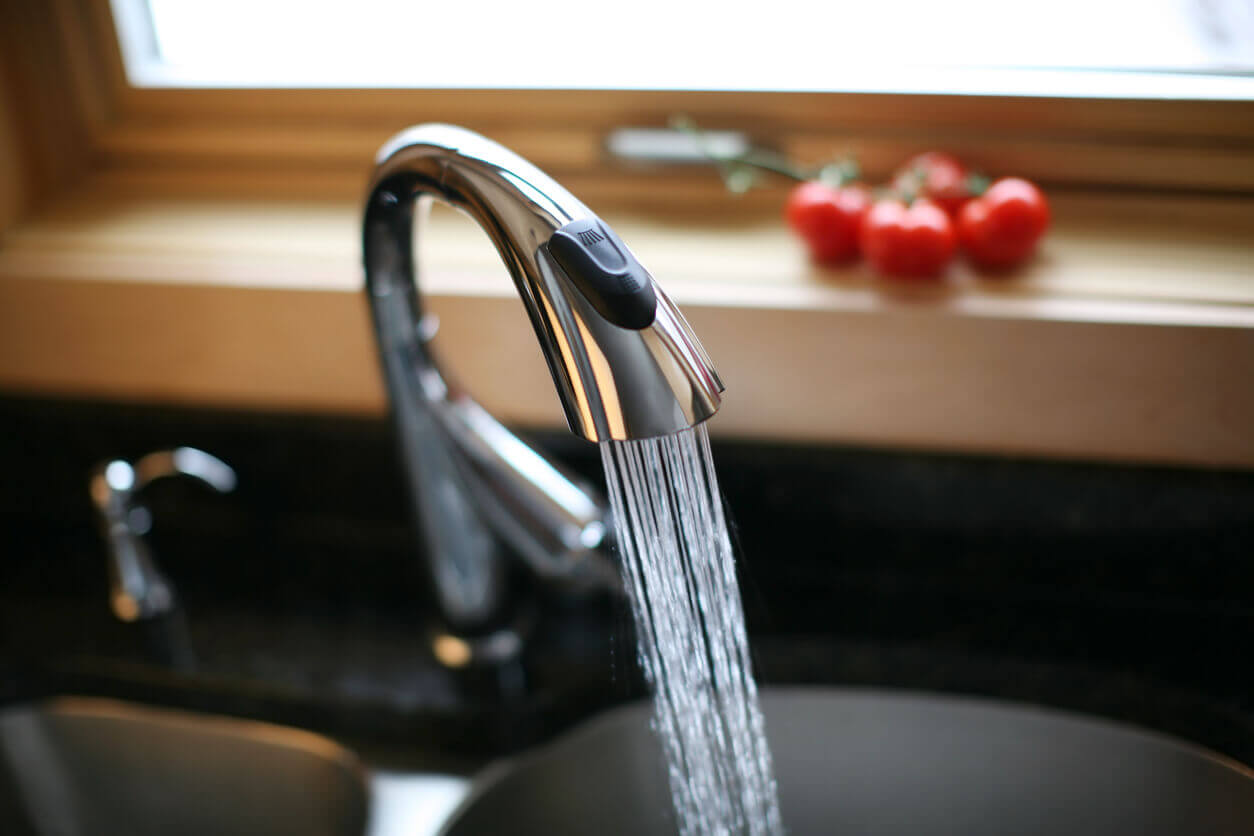 You've scrubbed your kitchen from top to bottom, taken out the trash, and aired out the room, but that strange odor still lingers. You've checked the fridge and the garbage disposal, but nothing seems to be the source. Before you start panicking, it may be worth considering the possibility that
your kitchen sink is the culprit
.
You've scrubbed your kitchen from top to bottom, taken out the trash, and aired out the room, but that strange odor still lingers. You've checked the fridge and the garbage disposal, but nothing seems to be the source. Before you start panicking, it may be worth considering the possibility that
your kitchen sink is the culprit
.
The Problem with Traditional Drain Designs
 Most traditional kitchen sinks are equipped with a P-trap, a curved pipe that connects the drain to the main plumbing system. While this design is effective at trapping debris and preventing clogs, it can also lead to unpleasant odors. The curved shape of the P-trap can
trap water and debris
, creating the perfect environment for
bacteria and mold growth
. Over time, these organisms can produce a foul smell that permeates through your kitchen.
Most traditional kitchen sinks are equipped with a P-trap, a curved pipe that connects the drain to the main plumbing system. While this design is effective at trapping debris and preventing clogs, it can also lead to unpleasant odors. The curved shape of the P-trap can
trap water and debris
, creating the perfect environment for
bacteria and mold growth
. Over time, these organisms can produce a foul smell that permeates through your kitchen.
The Solution: A Modern Twist on Drain Design
 Luckily, there is a simple solution to this issue. One of the newest trends in kitchen design is the use of a
linear drain
instead of a traditional P-trap. This type of drain is long and narrow, running along the edge of the sink rather than underneath it.
By eliminating the curved P-trap, there is less potential for water and debris to get trapped
, reducing the chances of bacterial and mold growth and eliminating that unpleasant odor.
Luckily, there is a simple solution to this issue. One of the newest trends in kitchen design is the use of a
linear drain
instead of a traditional P-trap. This type of drain is long and narrow, running along the edge of the sink rather than underneath it.
By eliminating the curved P-trap, there is less potential for water and debris to get trapped
, reducing the chances of bacterial and mold growth and eliminating that unpleasant odor.
Benefits Beyond Odor Control
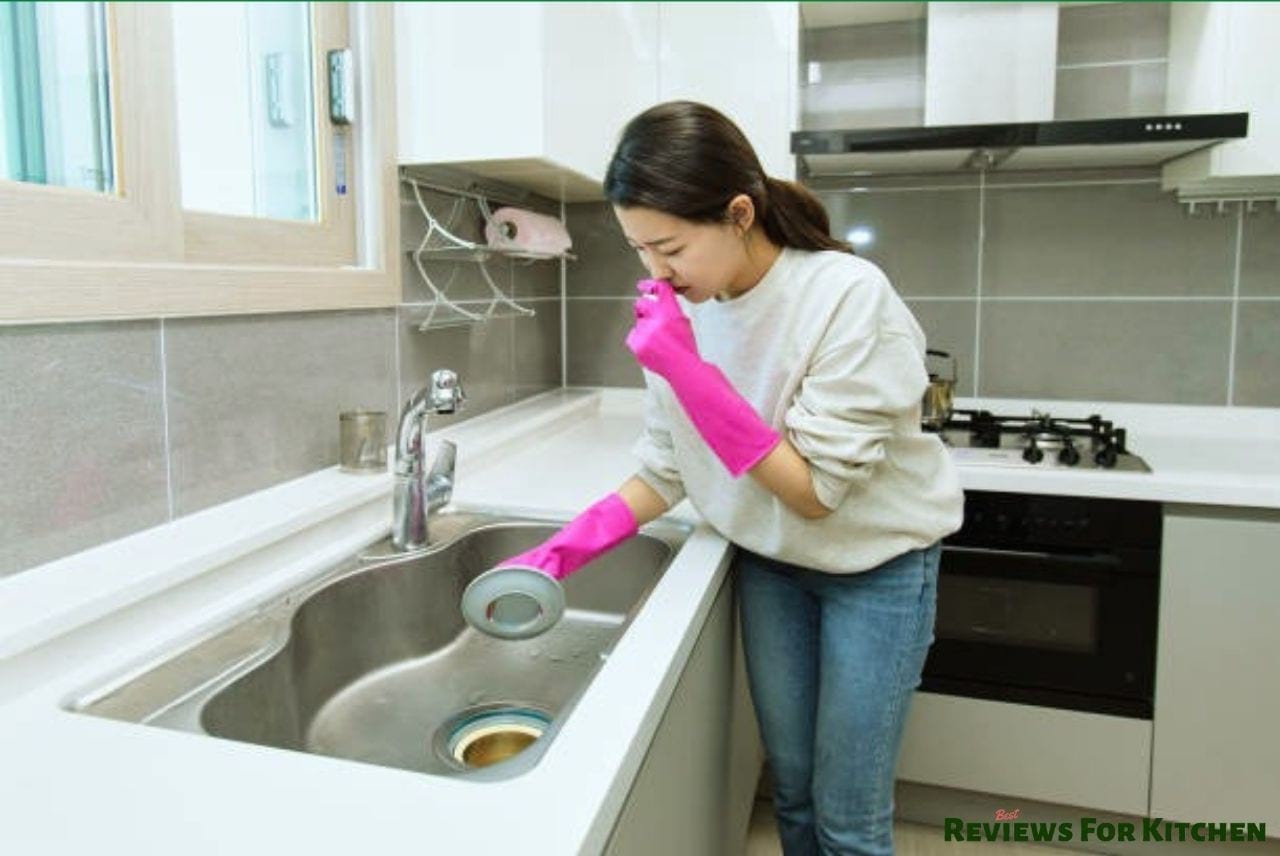 In addition to eliminating any weird smells, a linear drain can also add a modern and sleek look to your kitchen. It can also
improve drainage and reduce the risk of clogs
, making it a practical and functional choice for any kitchen. Plus, with its low profile design, it can even make cleaning your sink easier.
In addition to eliminating any weird smells, a linear drain can also add a modern and sleek look to your kitchen. It can also
improve drainage and reduce the risk of clogs
, making it a practical and functional choice for any kitchen. Plus, with its low profile design, it can even make cleaning your sink easier.
Upgrade Your Kitchen Sink Today
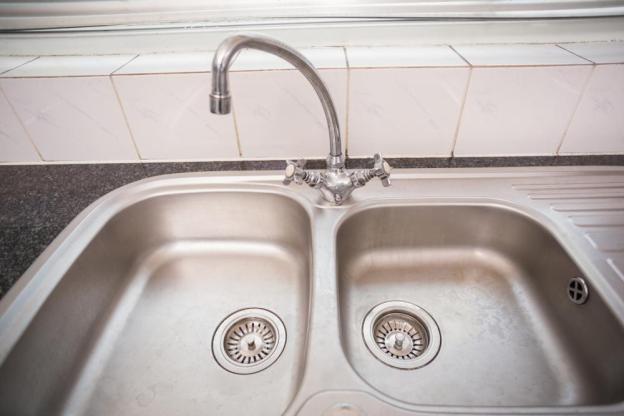 Don't let a weird smell from your kitchen sink ruin your cooking and dining experience. Consider upgrading to a linear drain and say goodbye to unwanted odors for good. With its practical and aesthetic benefits, it's a small upgrade that can make a big difference in your kitchen.
Contact a professional plumber
to learn more about this modern twist on drain design and start enjoying a fresh and odor-free kitchen.
Don't let a weird smell from your kitchen sink ruin your cooking and dining experience. Consider upgrading to a linear drain and say goodbye to unwanted odors for good. With its practical and aesthetic benefits, it's a small upgrade that can make a big difference in your kitchen.
Contact a professional plumber
to learn more about this modern twist on drain design and start enjoying a fresh and odor-free kitchen.




